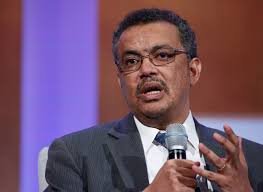Korede Abdullah in Lagos
The World Health Organization (WHO) has issued a stark warning about the long-term implications of widespread reductions in official development assistance (ODA) for health services globally.
The organization announced this yesterday, emphasizing that these funding cuts are already straining healthcare systems, especially in low-income regions.
“Many countries are attempting to increase or reallocate funding from domestic and alternative external sources to address the funding gaps,” the report noted. However, it also highlighted that “up to 24% of WHO country office responses suggest that budget cuts are already leading to increased out-of-pocket payments, disproportionately affecting the poor and vulnerable.”
According to WHO Director-General Dr. Tedros Adhanom Ghebreyesus, the findings paint “a worrying picture of the consequences of sudden and unplanned aid cuts on the health of millions.”
While acknowledging the serious risks posed by these cuts, he also emphasized the potential for positive change. “Although these cuts are a shock, they are also accelerating the transition from aid dependency to more sustainable self-reliance based on domestic resources,” he added.
WHO is actively working with affected countries to help identify and implement effective strategies tailored to their specific needs.
The report reveals that reductions in aid are disrupting all aspects of health system functionality.
The most frequently affected areas include emergency preparedness (70%), public health surveillance (66%), healthcare service provision (58%), humanitarian aid (56%), and the health workforce (54%).
It warns that “at least one-third of responding countries reported disruptions across all health services,” with especially severe effects on outbreak response, maternal and child health, and control of diseases like HIV, malaria, and tuberculosis.
In some regions, the disruptions are reportedly on par with the worst stages of the COVID-19 pandemic.
Furthermore, the crisis has extended to critical resources and infrastructure.
A third of countries surveyed reported severe shortages of medicines and health products, while over half cited job losses among healthcare workers and disruptions to training programs.
“Information systems have also been hit hard,” the report said, with more than 40% of countries reporting issues with surveillance networks, health data systems, and laboratory services.
Dr. Ghebreyesus confirmed that 81 of 108 WHO country offices are calling for urgent support, including funding, technical aid, and capacity building, and affirmed that WHO will “continue to track developments closely” while coordinating global responses to avoid catastrophic consequences for public health.



